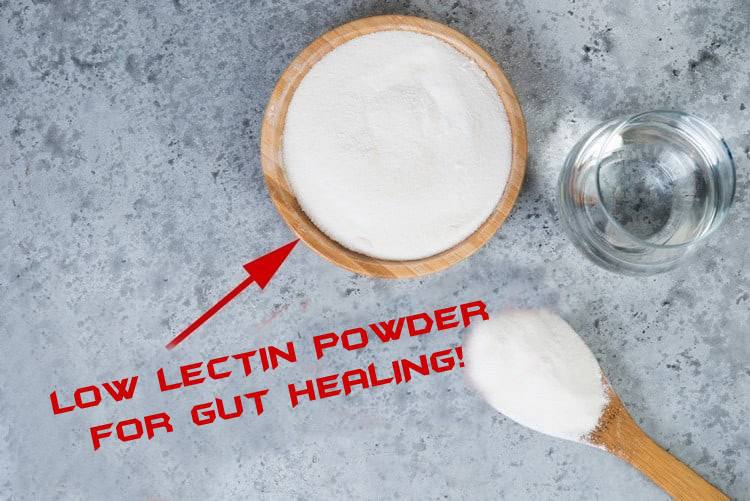A Powerful & Simple Guide To Low Lectin Herbs
Are you looking to incorporate more low lectin herbs into your diet?
We will explore what lectins are and the different types that exist. We will also discuss the benefits and risks of consuming low lectin herbs, as well as provide a list of great ones to include in your daily meals.
From bay leaf to wild mint, these herbs not only add flavor to your dishes but also offer numerous health benefits. Let’s dive in and discover the power of low lectin herbs!
What Are Lectins?
Lectins are a type of anti-nutrient found in many plant foods that can cause adverse effects in some individuals, particularly those with lectin sensitivity. They can impact digestive health by interfering with nutrient absorption and promoting inflammation in the gut.
When lectins are consumed, they can bind to the cells lining the digestive tract, potentially leading to leaky gut syndrome and triggering immune responses that can worsen conditions like irritable bowel syndrome (IBS) and Crohn’s disease.
To reduce inflammation caused by lectins, individuals can opt for cooking methods like soaking, fermenting, or pressure cooking, which can help deactivate or reduce lectin levels in foods such as legumes, grains, and nightshade vegetables. By avoiding lectin-rich foods or properly preparing them, individuals may experience relief from digestive discomfort and support overall gut health.
What Are the Types of Lectins?
There are various types of lectins present in different plant proteins, such as grains, legumes, and nightshade vegetables. These lectins can trigger food sensitivities and worsen autoimmune conditions, especially when consumed in high amounts.
For example, gluten in grains, such as wheat, contains lectins that can be problematic for individuals with celiac disease or gluten sensitivity. Legumes like beans and lentils also contain lectins that may contribute to digestive issues in some people. Nightshade vegetables, including tomatoes, peppers, and eggplants, contain lectins that have been associated with inflammation in certain autoimmune conditions. Understanding the role of lectins in these various food sources is crucial for managing health conditions related to autoimmune diseases and food sensitivities.
What Are Low Lectin Herbs?
Low lectin herbs are plant-based herbs that contain minimal lectins, making them suitable for individuals following a low lectin diet. These herbs are nutrient-dense and provide essential phytonutrients without the lectin content found in other plant foods.
Incorporating low lectin herbs into a plant-based diet can be a fantastic way to boost your health naturally. By adding these herbs to your meals, you are not only enhancing the flavors but also reaping the benefits of their medicinal properties. These herbs have been used for centuries in herbal remedies to support various health conditions due to their rich nutrient profile. Including low lectin herbs in your diet can contribute to overall well-being and balance in a holistic approach to nutrition and wellness.
What Are the Benefits of Consuming Low Lectin Herbs?
Consuming low lectin herbs offers a multitude of benefits, including supporting the immune system, providing natural supplements, and offering a source of organic herbs packed with health-promoting nutrients.
Some herbs can even provide antimicrobial benefits that help to keep a positive balance in the gut! Therefore, mixing them in to your diet can be quiet beneficial. One of the downsides of a low lectin diet is that it could be lacking in nutrients. For a simple yet powerful food-based way to combat this, check out this nutrient booster.
Incorporating these herbs into your daily meals can contribute to enhanced overall health due to their antioxidant properties, which help combat oxidative stress and inflammation in the body. Low lectin herbs like oregano can aid digestion and promote gut health, thanks to their mild detoxifying effects.
By adding these herbs to chicken, salads, or homemade dressings, you can enjoy a boost in flavor along with a dose of essential vitamins and minerals for a well-rounded, nutritious diet.
What Are the Risks of Consuming Low Lectin Herbs?
While generally safe, consuming low lectin herbs could cause adverse reactions if consumed in large enough quantities. The same benefits that can have beneficial antimicrobial effects for the gut, can create a Herxheimer reaction if a large enough quantity is eaten at once or over time. This, however, is generally not a concern for regular consumption of herbs, although some light detox effects could potentially occur as the body removes toxins and other waste from the body.
While cilantro is on the list below, some people do say it tastes completely awful and like soap. This is potentially due to a genetic trait. So for those people, it may risk putting them in a bad mood, haha.
What Are the Best Low Lectin Herbs to Include in Your Diet?
Incorporating a variety of low lectin herbs into your diet can enhance flavor profiles and offer numerous health benefits. From using them in cooking to brewing herbal teas or infusions, these herbs provide essential nutritional support for overall wellness.
Some of the best low lectin herbs to consider for your culinary creations and herbal concoctions include oregano, bay leaf, and mint.
Here’s a list of some low lectin herbs that all showed no lectin activity in research: ¹
- Bay leaf
- Cilantro
- Wild mint
- Spearmint
- Oregano
- Dill
That being said, herbs and leafy greens are generally considered low in lectins, so overall you may consider eating pretty much any herbs including high lectin herbs.
Compared to other high lectin foods like beans, the quantity is probably marginal. Additionally, herbs do not seem to often be foods that people are generally sensitive to, although this may partially be a result of how small a quantity of them is eaten. Herbs also have been historically eaten, and can be eaten without preparation which is generally a sign of lower amounts of antinutrients such as lectins.
Resources:
1. http://medicinalplants-kr.org/

